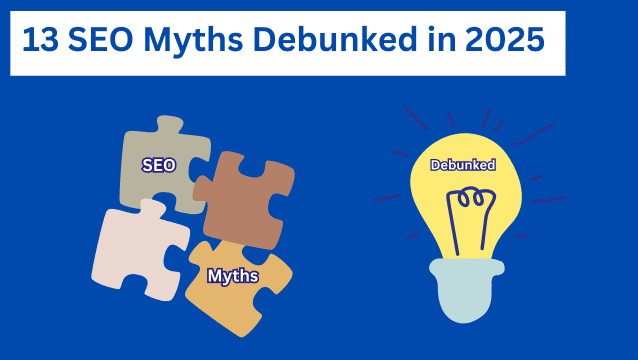A good search engine optimization (SEO) strategy can not only help you improve search rankings, but it can also:
- Increase awareness for your product/service
- Assist with brand recall
- Grow your product/service sales
- Get you website traffic of high-intent readers
- Secure a spot on featured snippets and AI Overviews for your content
- Be an excellent asset for long-term return on investment (ROI)
However, the start and end of any good SEO strategy is a great SEO vendor.
But, choosing the right vendor can be a whole different story. Questions like the following are bound to pop up:
- Should I hire a freelancer, agency, or consultancy?
- In-house vs. outsourcing — which decision is best for me?
- Is hiring an SEO vendor the right move for my company (considering X factor)?
- What benefit will I get from it, and why should I do it?
Don’t worry — most of us have been there. If anything, these questions are normal and show you have the best interests of your company. This is why, in this piece, we’re focusing on how exactly SEO vendors can help you.
We’re also deep-diving to understand how to find and vet reliable vendors and which type (freelancer vs. consultancy vs. agency) you should choose.
What does an SEO company do?
An SEO service provider is responsible for a wide range of activities, including (but not limited to):
- Improving your online visibility and search engine rankings.
- Conducting SEO audits. (This includes analyzing content optimization, user experiences, competitors, and current SEO performance.)
- Driving website traffic and increasing conversion rates.
- Handling all facets of SEO — including on-page, off-page, technical, and local SEO.
- Creating new SEO campaigns. (This comprehensive approach includes identifying keywords, potential customers, search engine algorithm updates, etc.)
While there are many agencies/SEO experts out there that focus solely on SEO, there are also full-service digital marketing agencies that have dedicated teams solely for SEO.
Partnering with such agencies helps you not only be one step ahead with SEO, but it can also help with other marketing tasks, such as:
- Link building
- Social media marketing
- Digital strategy
- Email marketing
For example, an agency like uSERP is known for its SEO content strategy as well as its link building services.
How do you find and vet reliable SEO vendors?
Coming to the meat of the article — let’s find some reliable vendors!
Step 1: Before getting started
First things first — before you even start looking for SEO companies, there are a few considerations you should have in mind:
- Know that SEO results don’t happen overnight. In one study, Semrush found that around 41% of websites experience better rankings after 6 months.
- You’ll need to identify your goals—are you using SEO to grow traffic, generate leads, or improve online visibility?
- It might be best to hire local SEO firms, especially as a small business. This is because cultural fit can come into play. When creating SEO campaigns, you might need to be relatable through cultural context, language, and communication style.
- Identify what resources (and for how long) you can allocate to SEO. For example, what does your budget look like? Who’s your internal point of contact with the external SEO team?
Step 2: Identify top SEO companies
Once you’re ready with the basics, now’s the time to shortlist a few SEO vendors. Here are all the possible options you can try to find SEO experts:
Option A: Ask your network for referrals
Our best recommendation would be to ask your direct industry contacts for referrals. Aside from the benefit of direct working experience, they will:
- Already be vetted.
- Have industry expertise (and proven results).
- Provide transparency on costs, deliverables, methods, and communication style.
- Have insider knowledge of vendor strengths and weaknesses.
Option B: Search the internet
If option A doesn’t work out in your favor, you can always search the internet (including social media channels) to find reliable SEO experts. Usually, queries like “Best SEO firms in [Location]” will come up with adequate results.
Screenshot provided by the author
Option C: Look for SEO vendors on marketplaces
If options A and B don’t work, you can use different marketplaces to find your experts — in this case, freelancers. Use websites to hire:
- Upwork
- PeoplePerHour
- Vetted
- MarketerHire
In most instances, you’ll find the SEO vendors have the following listed on their page:
- Information about their services and expertise
- Customer reviews
- Job success rate
- Service offerings
- Niche expertise
- Hourly rate
Combined, all these things will help you make a decision as to which SEO expert to choose.
Screenshot provided by the author
Option D: Reverse engineer who does SEO for your favorite websites
Another idea is to identify the companies whose SEO strategies you like. Once that’s done, go online and search who does their SEO strategy. Or better yet, ask them (or one of their partners) directly.
Most of the time, the SEO agencies that have gotten results for their clients will publish case studies on the client’s strategy and SEO success.
For example, if we reverse engineer who does the SEO for Monday.com, case studies from uSERP pop up. After going on this page, we realize uSERP has been:
- Doing SEO for Monday.com for the past two years; and
- Has helped them earn organic rankings for 5000+ keywords.
Screenshot provided by the author
Option E: Look through directories
If the above don’t provide great results, SEO directories can help. Try browsing resources like Yelp, Yellow Pages, Clutch, and G2. These often post rankings of top SEO agencies. Alongside this, they also mention:
- Pricing information
- Service expertise
- Location
- Customer Reviews
Option F: Find industry award winners
Another thing you can do is try and identify award winners in your specific niche.
For example, organizations like Global Search Awards, Search Engine Land, MarTech Breakthrough Awards, etc., usually recognize top SEO agencies and breakthrough strategies/methods.
On the other hand, G2 and Clutch regularly publish rankings of top SEO companies.
Option G: Join SEO communities and forums
Last but not least, you can join SEO communities and forums like:
- Reddit SEO communities (e.g., r/SEO)
- Search Engine Roundtable
- SEO Chat Forum
- Mo z Community
- SEO Slack Channels
Doing this will help you understand who are the true SEO leaders in your industry, which companies are testing breakthrough campaigns, and which experts/vendors other SEO professionals look up to.
Based on these factors, you can come to a conclusive decision on which SEO expert to choose.
Step 3: Go through their client list, industry expertise, and track record
Suppose you’ve gone through all the steps of identifying and shortlisting the top SEO vendors. The next step in this process is to vet them.
You can do this by:
- Going through their case studies
- Identifying their industry expertise (e.g., which niches they mainly do SEO for?)
- Analyzing their user reviews
For example, if you’re browsing through our website, you can find our case studies to see how we have helped our clients:
Step 4: Ask them about their processes
Building an SEO company involves a lot of work. But what truly sets a good agency apart from a great one is its process.
This is why, when chatting with any potential agency, we recommend asking about their processes, including (but not limited to) the following questions:
- What brand values and ethics do they adhere to before undertaking SEO campaigns?
- Do they use black hat SEO techniques? Do they make any specific guarantees?
- Do they only focus on specific metrics instead of overall brand goals?
- How do they adapt to algorithm updates (especially since we’re seeing more and more focus on AI content, brand mentions in AI Overviews, and search engines releasing new core updates more regularly)?
- How do they implement a custom SEO strategy for every client? How do they ensure uniqueness and brand integrity, especially when you’re trusting them with your brand voice and online presence?
- Which reporting tools, metrics, and communication apps do they use? How do they ensure seamless communication so there are no big blunders?
- Do they have any specific requirements for working with you? For example, some SEO companies may ask you to share internal resources before getting started.
Zaid Hashmi, a growth marketer responsible for SEO and content at Netcore Cloud, recommends looking for agencies that discuss metrics beyond website traffic. They say:
“Boosting traffic numbers is a vanity metric today. What I look for is something beyond just traffic to blogs, pages, or the website. They should talk about business outcomes for their clients, such as revenue, sign-ups, demo bookings, etc. They should align their pitch with their clients KPIs (key performance indicators).”
Step 5: Finalize your strategies and budget
Next up on the list (once you’ve identified the right SEO service provider) is to finalize your strategies and budget.
We say this because collaborating with them on the first few SEO projects can:
- Help you understand what you want from each other
- And avoid confusion about end results, deadlines, and workflows.
Step 6: Sign a month-on-month contract to test your partnership
Before signing with any agency/SEO expert for an annual package, we recommend partnering with them for 3-6 months to see if:
- They can truly bring you the results you need
- You enjoy working with them
- You can work with their systems and processes moving forward
- They can communicate effectively to avoid confusion
Step 7: Analyze your results and relationship with the SEO agency
As the last step of the process, we recommend analyzing your results and relationship with the SEO expert/agency to:
- See how they react to feedback and strategy changes
- Find if they are using the right KPIs to deliver measurable results
- See how transparent their processes are
- See what their customer support and reporting standards look like
- Confirm if they are the right fit for considering long-term ROI and partnership value
We recommend going through Step 7 every quarter to ensure the effectiveness of your SEO campaigns.
Freelancer vs. Consultancy vs. Agency: Which option to choose?
Truth be told, when it comes to a decision like this, a lot of factors come into consideration. However, just to give you a TL;DR based on our internal insights and data, we’d recommend the following options:
- Partner with agencies if you’re a mid-sized or enterprise business. This is because you need a dedicated team and resources to undertake any SEO campaigns.
- Partner with freelancers if you’re a small business or a freelancer trying to build their new site or gain brand awareness.
- Partner with consultancies if you already have an in-house SEO team but need someone with more experience to provide strategy direction and in-depth SEO knowledge.
Wrapping Up
Finding reliable SEO vendors can take a lof of time. However, you can refer to our 7 steps to help you find the right freelancer or agency. These include reading their customer reviews, checking out their case studies, and joining industry forums.
Our SEO experts at uSERP have helped a lot of companies like monday.com, Form Health, and Henry Meds boost their SEO performance and online visibility. And, we’ve also:
- Achieved a rating of 4.9/5 on Clutch and are considered a premium vendor.
- Helped our clients improve traffic, gain leads, and convert prospects into loyal customers.
- Earned many industry awards and have SEO leaders like Jeremy Moser and Brad Smith leading our SEO and content operations.
On that note, if you wish to work with our team (or simply know more about our processes), book an intro call now.
FAQs
1. How much does it cost to hire an SEO firm?
This depends on the type of SEO firm you hire, their expertise, and location. However, you can expect to invest around $7k-10k monthly to work with a reputed agency and see some results.
2. What are the best KPIs on which to evaluate SEO agencies?
Again, this depends on your goals. However, according to our experts, feel free to skip vanity metrics like impressions and website traffic and instead look at search engine rankings, CTR, backlink profile, etc.
3. Can SEO content be unique?
Yes, SEO content can be high-quality, unique content. To get results like this, you have to find the right experts who tailor their digital marketing agency services to your business goals.
4. Which types of businesses benefit from SEO?
SEO can benefit any industry. At uSERP, we’ve worked with SaaS, health, finance, and tech companies.


